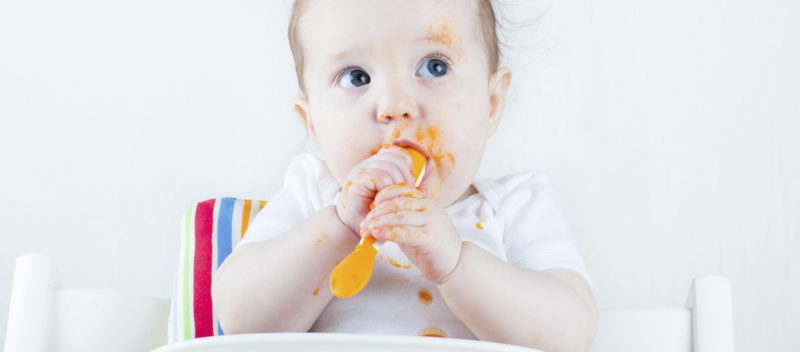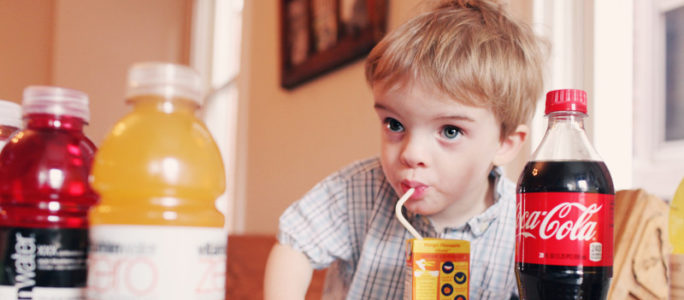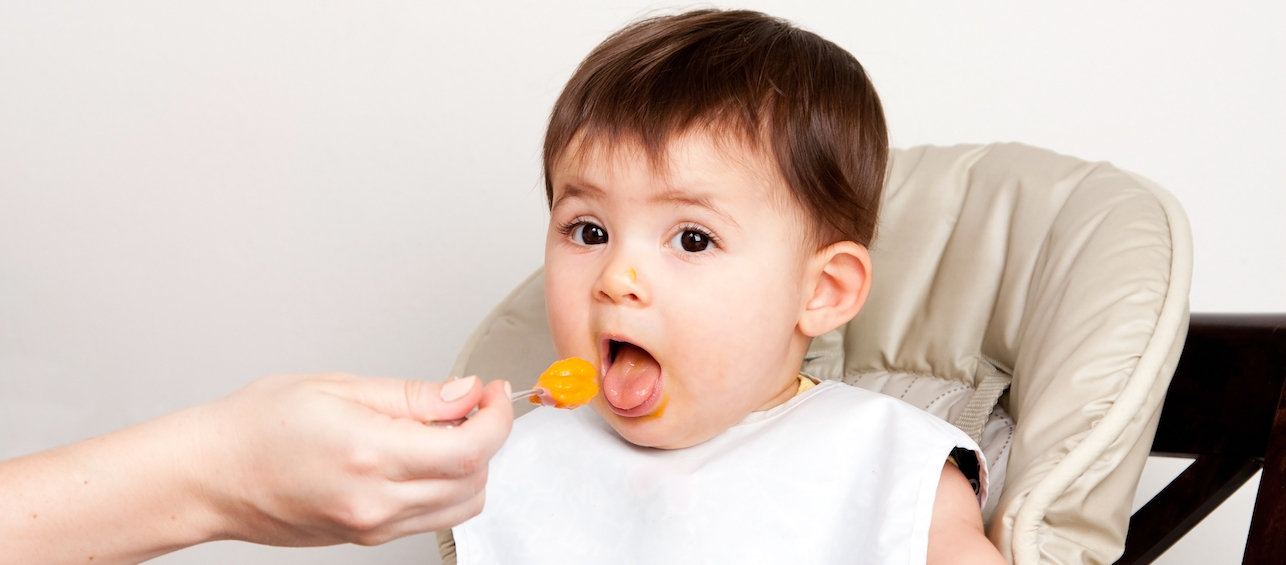Starting infants on solid foods not only provides nutrition, but also gives them a valuable opportunity to learn about different tastes, odors, and textures — which is an important milestone for all babies, regardless of whether or not there is a known food allergy or not.
Through a research collaboration between me, Kate Maslin, PhD, RD, and other dietetic researchers in the United Kingdom, we’re learning more about this period of time when infants are learning to eat, and how it impacts their diets later in life. Here’s what our research shows so far:
- A child’s taste can be influenced by what the mother ate during pregnancy and breastfeeding.
- The type of milk and food infants are fed early in life can affect food preferences later on.
- Exposing babies to a variety of foods and textures early on in life can help establish healthy eating habits going forward.
We get a lot of questions about how to introduce solid foods to babies, so we thought it might be helpful to provide the information in a chart. Here is an age-based guide to introducing solid foods to babies, with or without food allergies:
Schedule: Introducing Solid Food to Babies
| IMPORTANT TEXTURE MILESTONES | PORTION SIZE AND REQUENCY | |
| 4-6 MONTHS |
|
|
| 6-7 MONTHS |
|
|
| 8-10 MONTHS |
|
|
| 10+ MONTHS |
|
|
Food Allergy Awareness
As you are introducing new foods to babies, it is important to watch for allergic reactions. An allergic reaction to food can range from hives on the skin to vomiting to anaphylaxis. More information can be learned on ACAAI’s webpage.
For babies who need special diets because of a known food allergy, it can be challenging to provide them with a wide array of foods. However, it is still important to encourage different textures and a broad palate to ensure a well-balanced diet and food acceptance in general — and especially if they should outgrow their allergies. There are substitute foods available for most food allergies.
For example, a child with an egg allergy who has never tried cake may never accept the texture of cakes and muffins, even after outgrowing an egg food allergy. To avoid this situation, we recommend trying an egg-free cake or other baked good.
If you have found yourself in this situation and your child has diagnosed food allergies, a dietitian can help you find other suitable foods to ensure that your child has a varied diet with lots of different textures.
It is important to note that you should only avoid feeding your baby foods if you know that he or she is allergic to them. If you are concerned that your baby might be allergic to a specific food, please speak with your child’s doctor about it. The latest research indicates that in order to prevent food allergies, it is better to introduce the food early in life rather than to avoid it. (More information about food allergies in general can be found at the National Institute of Allergy and Infectious Disease.)
For more information, please reach out to your child’s pediatrician, or contact our Pediatric Care Center at 513-636-7722.
Editor’s note: This post was written in collaboration with Kate Maslin, PhD, RD, an experienced pediatric dietitian who has performed extensive research in the field of food preferences in children with food allergies. She is a senior research fellow for the Portsmouth Birth cohort registry, an epidemiological study of infants born in Portsmouth in the South of England and the research officer for the food allergy specialist group of the British Dietetic Association. She is a former PhD student of Cincinnati Children’s dietitian, Carina Venter, PhD. Together, they have published a number of papers on the topic of picky eating and food refusal in children with current and past food allergies.






Hi Carina,
This article is very informative! This will be really helpful for the mommies who don’t get a proper guidance about how to take care of their baby. I’m one among them. Since I’m living alone with my baby girl, I’m going through a lot of troubles and doubts about how to take care of her. The only guidance that I got is from the nanny whom I had hired from a well-known nanny placement agency in Oakville. She is helping me to take care of her during my office hours. Usually, she is the one who is managing the feeding part so the first thing that I did after reading this blog is making her aware of the schedule of the baby food.